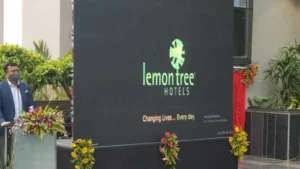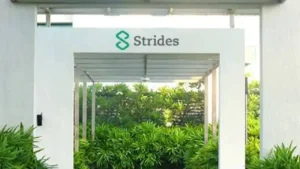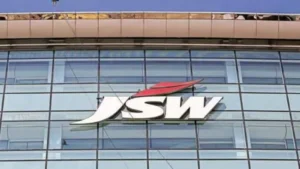Karnataka, home to major skill game companies like Gameskraft and Mobile Premier League, seems divided over the GST Council’s recent decision to levy a 28% tax on the real money online gaming sector.
Karnataka Revenue Minister Krishna Byre Gowda, who represents the Parliament-run state on the GST council, did not object to the decision. “He considers online gambling to be under betting and fully supports the 28% Goods and Services Tax (GST) on online gambling,” a source close to Gowda told Moneycontrol. Gowda had no comment, despite repeated attempts. However, Karnataka’s Minister of Information Technology and Biotechnology (IT-BT), Priyank Kharge, criticized the council’s decision. “It’s not a matter of whether Gowda and I are at odds. The bigger story is unfortunately that although Rajeev Chandrasekhar (Minister of Electronics and Information Technology) is the head of the affairs, who is from Karnataka, Nirmala Sitharaman (Union Finance Minister) from Karnataka (Representative Rajya Minister Khasa Sabha for games and betting), they cannot Kharge said there will always be different points of view, as it also depends on how Gowda interprets the situation.
“Gowda is a member of the GST Council, and everything he says represents the state’s position, I don’t deny that. Gowda’s thinking is correct. However, the problem arose because the game companies registered here or the federations did not reach us sooner; if they have, I have arranged a joint meeting to ensure clarity. Gowda, the sports federation and I have never had a joint discussion before because they have never approached us before,” the minister said.
“Chandrashekhar says he will write to Sitharaman again. If necessary, the state government will intervene. States like Goa, Assam and Mizoram also objected to the GST council’s decision,” he said. In April, MeitY announced new gaming-related amendments to the IT Act 2021. These amendments will allow certain self-regulatory organizations (SROs) to determine if real money gaming, involving money transfers, is allowed to operate in India.
Last week, Chandrasekhar said the ministry was still in the “early stages” of creating a “predictable, sustainable and authoritative” online gambling framework.
Chandrasekhar said that once the framework is established, the ministry will contact the GST board, asking them to review the new tax regulatory framework.
It should be noted that these taxes do not apply to free and paid video games in countries where the 18% GST is already included in app sales on Google Play and Apple App Store. “There’s a very thin line between what the gambling companies are asking for and what the Coalition government has done, so we have to be careful to keep gambling alive without legalizing betting,” Kharge said.
On July 11th, the GST Council decided to apply the highest GST bracket of 28% of the total value of money paid by users to play games of skill in a uniform manner, irrespective of games of skill and games of chance. The gaming platform currently pays 18% GST for platform fees.
The move, which comes after years of deliberation, has shocked the country’s rapidly growing real money gambling industry. Some industry leaders and associations have warned that the move will “wipe out the entire industry and lead to job losses”.
“We oppose betting in any form. However, if we impose a general restriction, without distinguishing between skill and luck, the industry will hardly survive,” Kharge said.
He pointed out that players are not protected in such cases. “So it could lead to players looking for options outside of the country if it’s restricted here. They’ll be playing with Chinese companies and those in Europe and elsewhere. Whenever they get scammed, there’s nothing we can do.”
Earlier on July 13, Kharge said 28% GST for real money gambling is an obstacle to the digital economy’s $1 trillion goal. On July 21, a group of 30 prominent local and international startup investors, including Tiger Global, Peak XV Partners and Steadview Capital, wrote to Prime Minister Narendra Modi to express concerns about the recent decision of the GST Council.
Investors have warned that the proposal could lead to the potential cancellation of $2.5 billion in capital investment, as well as the loss of more than 50,000 high-skilled jobs. They also added that the proposal would negatively impact potential investments of at least $4 billion over the next three to four years.
The investor letter follows a group of about 130 real money gambling startup founders, CEOs and industry associations signing an open letter to the government, asking them to reconsider GST.
The founders and investors of skill-based games previously told Moneycontrol that the new GST on money games could result in a 1,000% increase in indirect taxes for the industry. The real money games segment accounts for 77% of India’s games industry revenue by 2022, reaching Rs 13,500 crore, according to a recent report by FICCI-EY. He said these revenues are expected to reach Rs 16,700 crore in 2023 and Rs 23,100 crore in 2025.





